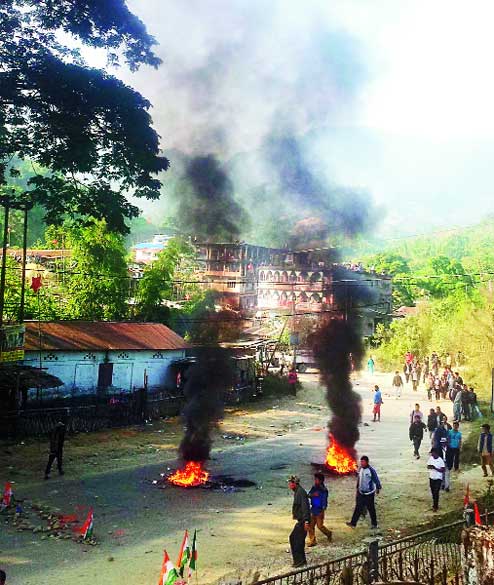
Guwahati, Sept. 22: The German Association for International Collaboration (Giz) has tied up with a Leipzig-based firm, Seidentraum, to create a market in Europe for eri silk from weavers in Meghalaya.
Under the climate-change adaptation project of Giz, supported by the government of Meghalaya, Seidentraum will procure silk from the weavers to make high-end fabrics, including baby products, initially for the German market.
A development agency under the German government, Giz has been associated with capacity-building and training programmes for women weavers, primarily in Ri Bhoi district, over the past three years, training them to be innovative with their designs. In the current phase, it plans to link the weavers to overseas markets.
"Over three to four years, we have reached out to women eri weavers, helping them to get accustomed to efficient working processes and technologies. Ri Bhoi's eri silk is very soft in texture and because of its high quality, is suitable for markets in Europe. Seidentraum will buy eri cloth from the weavers and make baby products for clients in Germany and elsewhere," Indrani Phukan, deputy project director (climate change adaptation, northeastern region), Giz, told The Telegraph. Over 260 women weavers are being trained under the programme.
Seidentraum, which has a huge market in Germany, is working out a business development plan.
"We have engaged an international consultant to draw a business plan for the firm," Phukan said.
The advantage of Meghalaya silk is that it is organic. Its farming is carried out without the use of herbicides and pesticides. There is no use of chemicals in rearing the eri cocoons either.
Giz is also associated with Andreas Moeller, a German innovator who made a loom with eight shafts and a flying shuttle, called Flying 8 Loom. The innovator will train the weavers to work on the low-cost, highly efficient loom.
"One can weave from both ends, so the productivity is enhanced," Phukan said.
Giz plans to sustain the initiative in the long term. "We have engaged with the government department to implement the training and capacity-building programmes for the weavers in Meghalaya so that the process is sustained in the long run," she said.
In the Northeast, Giz is mandated to work in Meghalaya, Sikkim, Mizoram and Arunachal Pradesh. "Currently, we are testing the German market in association with Seidentraum for the Ri Bhoi eri," project director Uwe Scholz said.
The development agency is planning to carry out similar initiatives in Nagaland and Mizoram. "In Nagaland, we are contemplating associating with muga weavers and helping them produce high quality silk for markets abroad. Owing to climate change, the mulberry trees are now grown on the foothills of that state. So, it's also an opportunity for the women to take advantage of what the changed climate has to offer and adapt to it for sustaining a livelihood," Phukan said.
Giz has carried out scoping missions in the partner states in areas such as organic agriculture, bamboo, eri, dried fruit and piggery.
"The scoping missions are carried out to ascertain which value chain to take up or which technology to adopt. For example, in Sikkim we are trying to extract honey without breaking the hive. We explore similar possibilities in these missions with an objective to add value and promote them in the European market," she said.
Sericulture and weaving are important cottage-based industries in the rural areas of Meghalaya, involving more than 30,000 families.
The two sectors were identified as providing consequent positive impact for climate change adaptation in line with Giz's programme objectives to create climate resilience in rural areas, protect natural resources and support inclusive social economic growth.











